Extra Challenge Graphs Worksheets for Ages 6-8
15 filtered results
-
From - To
Looking to boost your child's math skills? Our "Extra Challenge Graphs Worksheets for Ages 6-8" are designed to deepen children's understanding of graphing concepts while keeping them engaged. These thoughtfully crafted worksheets encourage children to interpret, create, and analyze different types of graphs through fun and stimulating activities. Ideal for enhancing their problem-solving abilities, the worksheets cater to various learning styles and ensure that kids grasp essential mathematical principles. Perfect for extra practice at home or in the classroom, these resources will challenge your young learners, making them confident in their graphing skills. Download now and foster a love for math today!
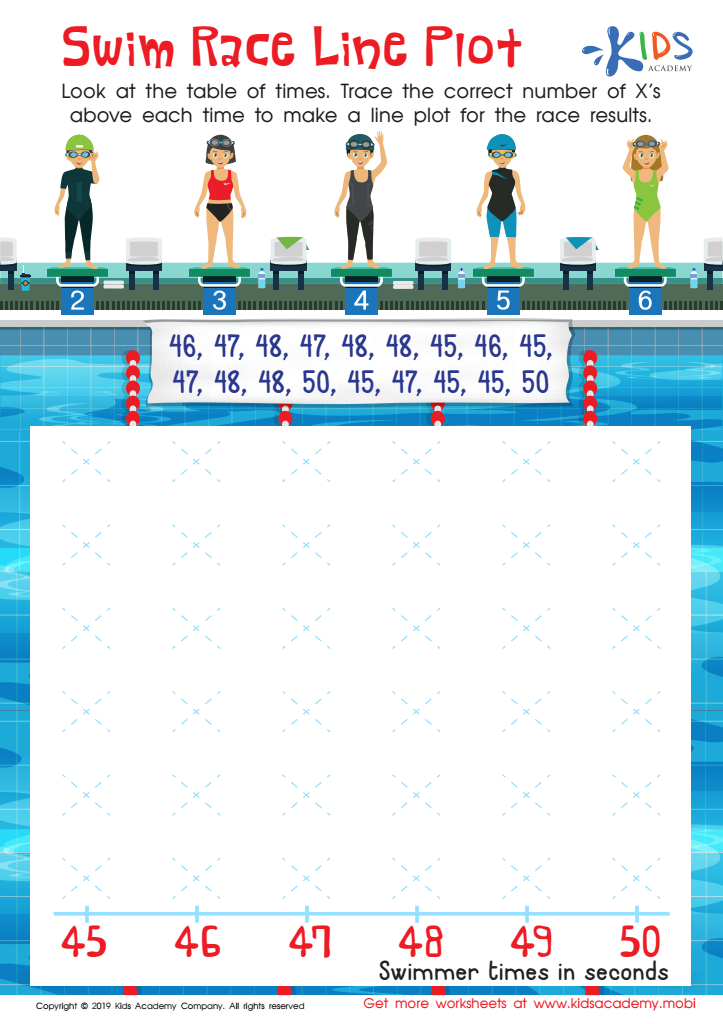

Swim Race Line Plot Worksheet
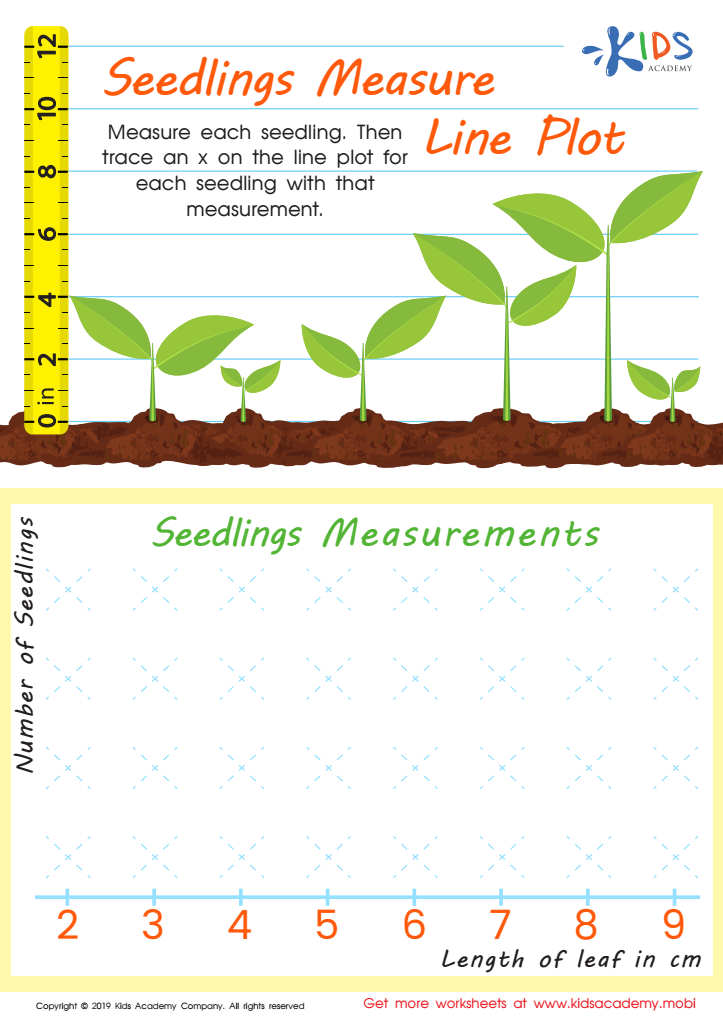

Seedling Measure Line Plot Worksheet
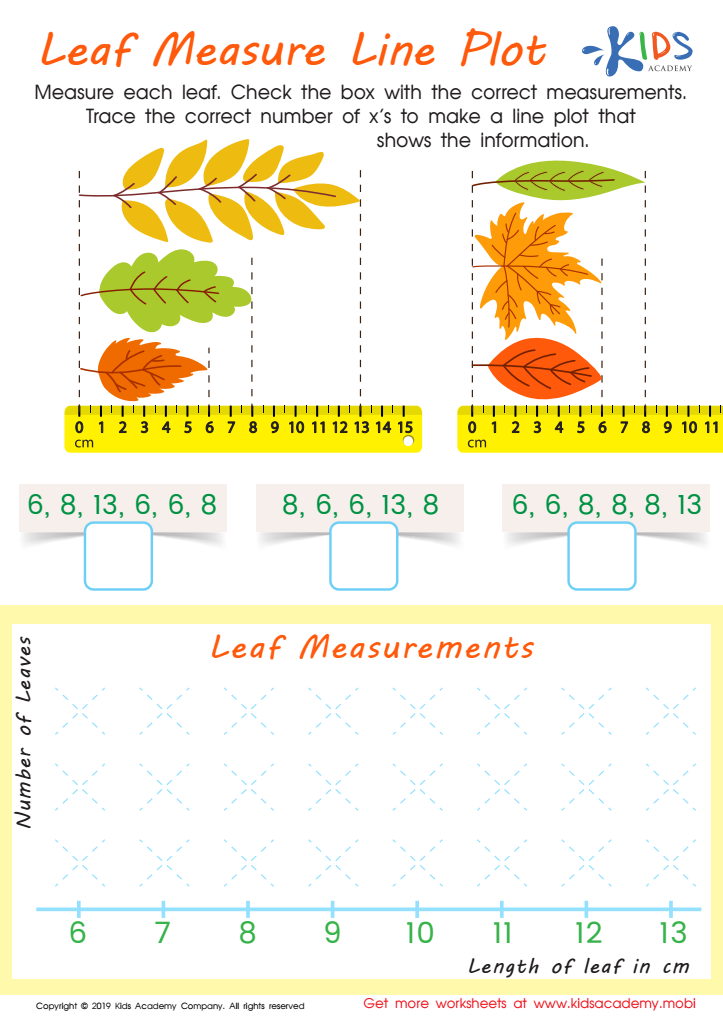

Leaf Measure Line Plot Worksheet
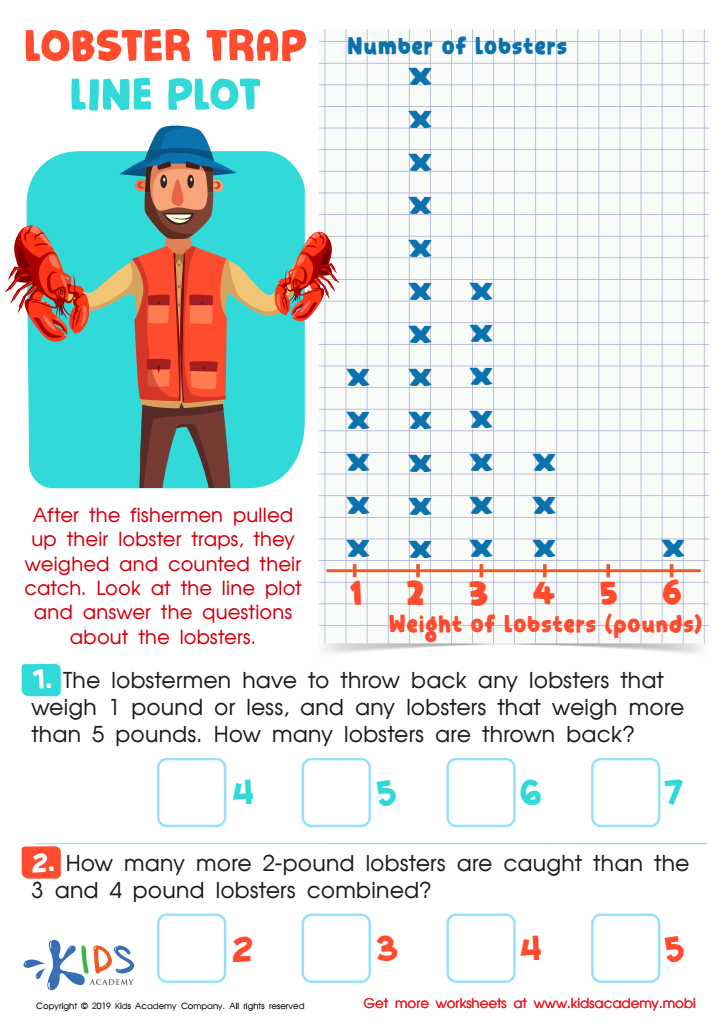

Lobster Trap Line Plot Worksheet
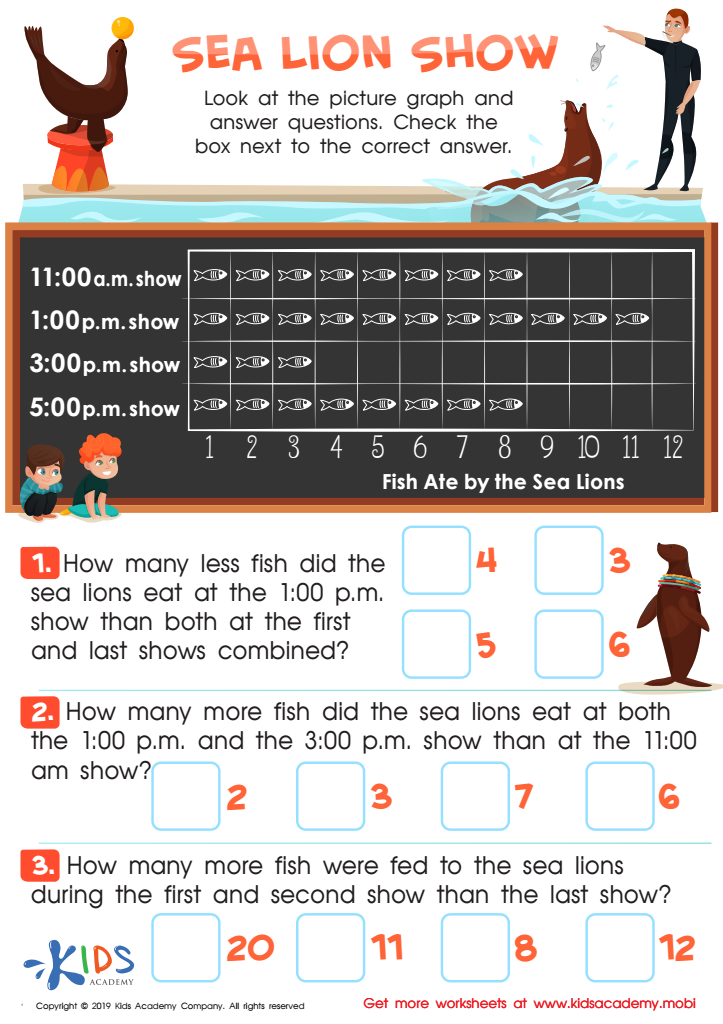

Sea Lion Show Worksheet
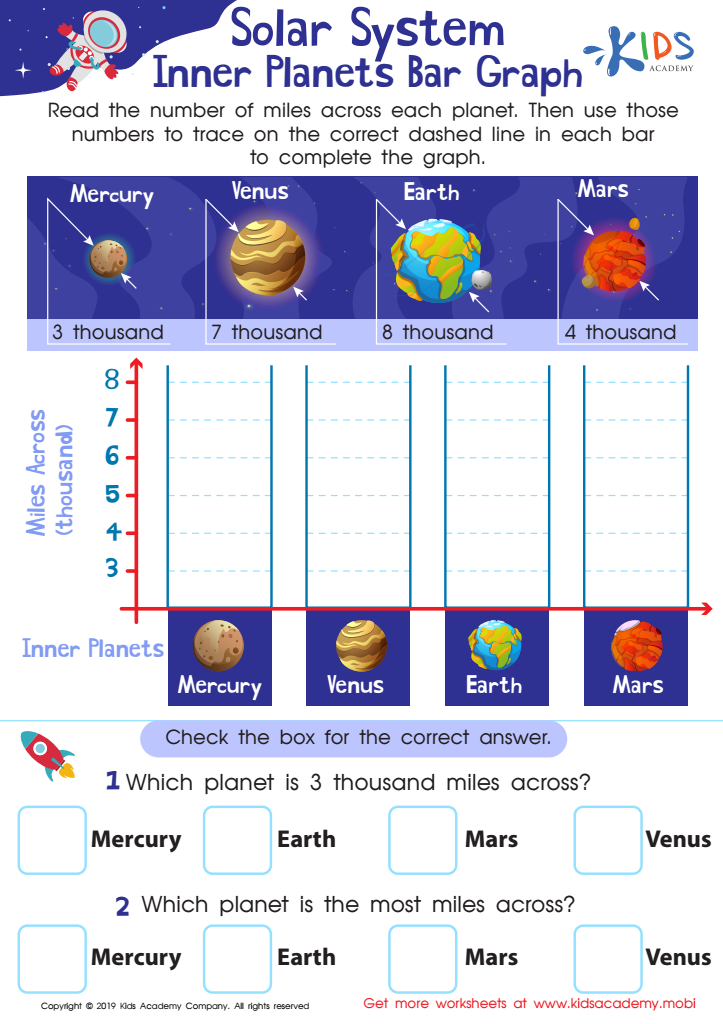

Planets Bar Graph Worksheet
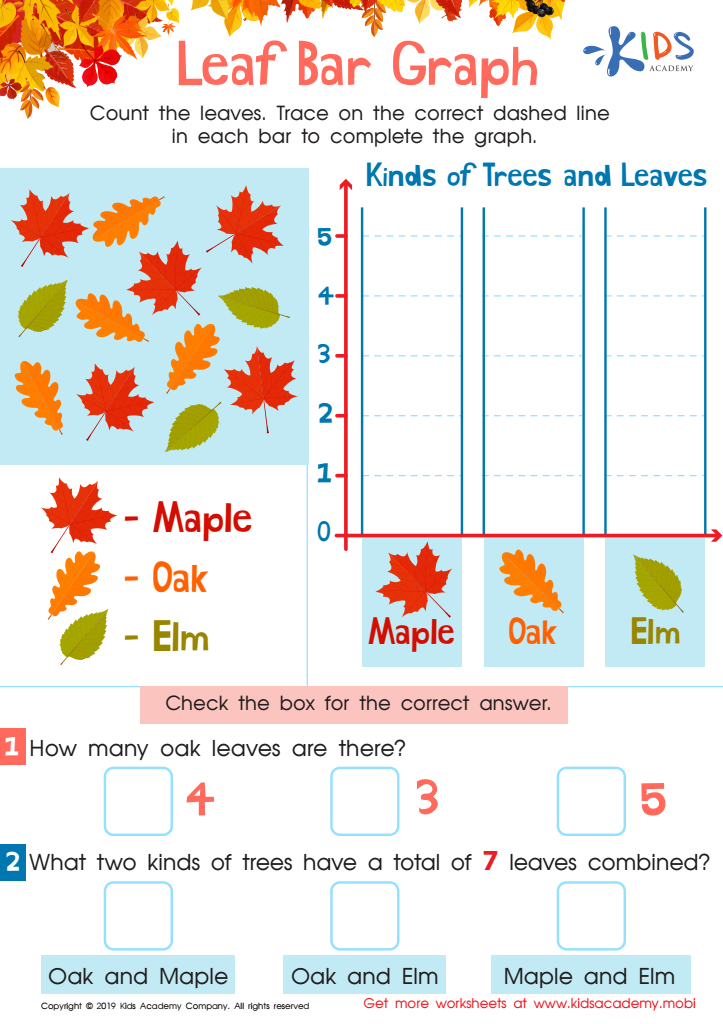

Leaf Bar Graph Worksheet
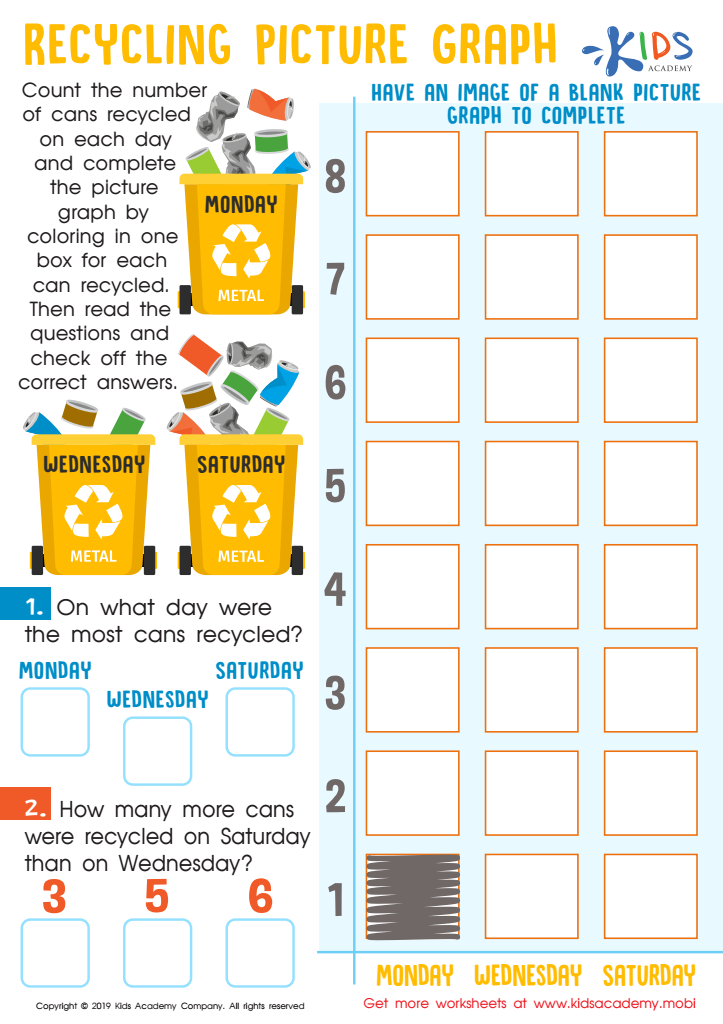

Recycling Picture Graph Worksheet
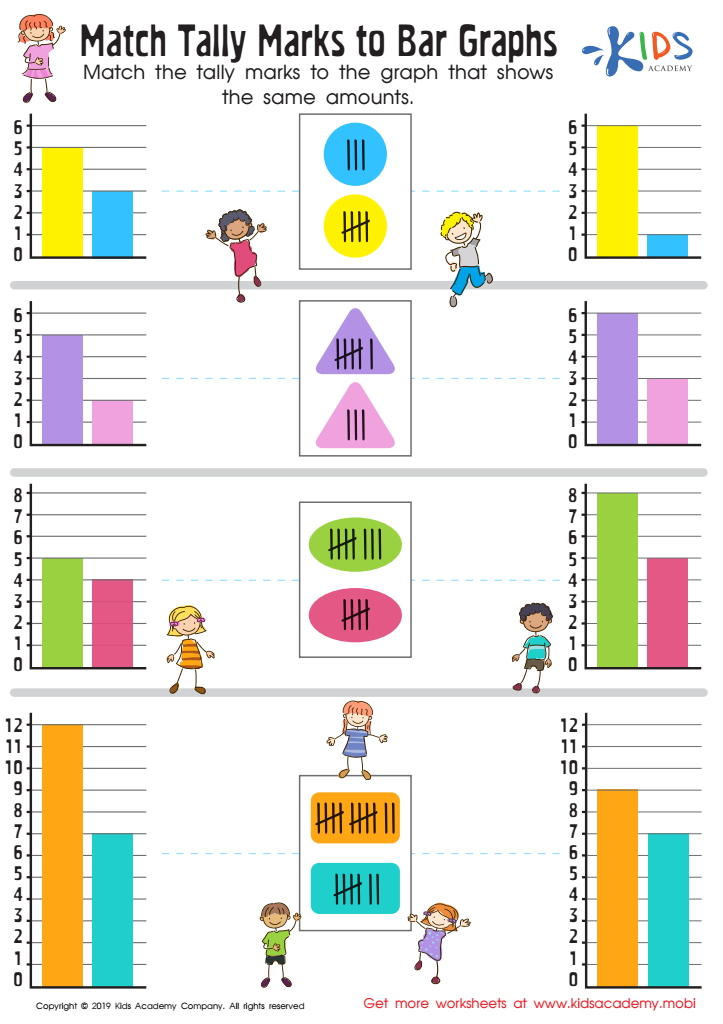

Match Tally Marks to Bar Graphs Worksheet
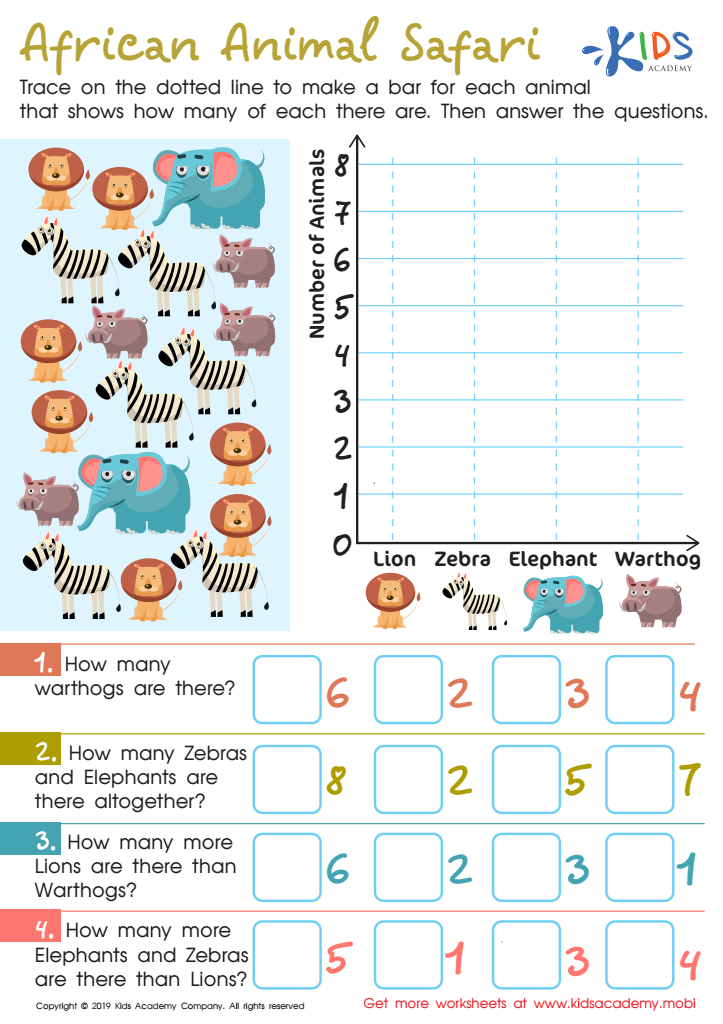

African Animal Safari Worksheet
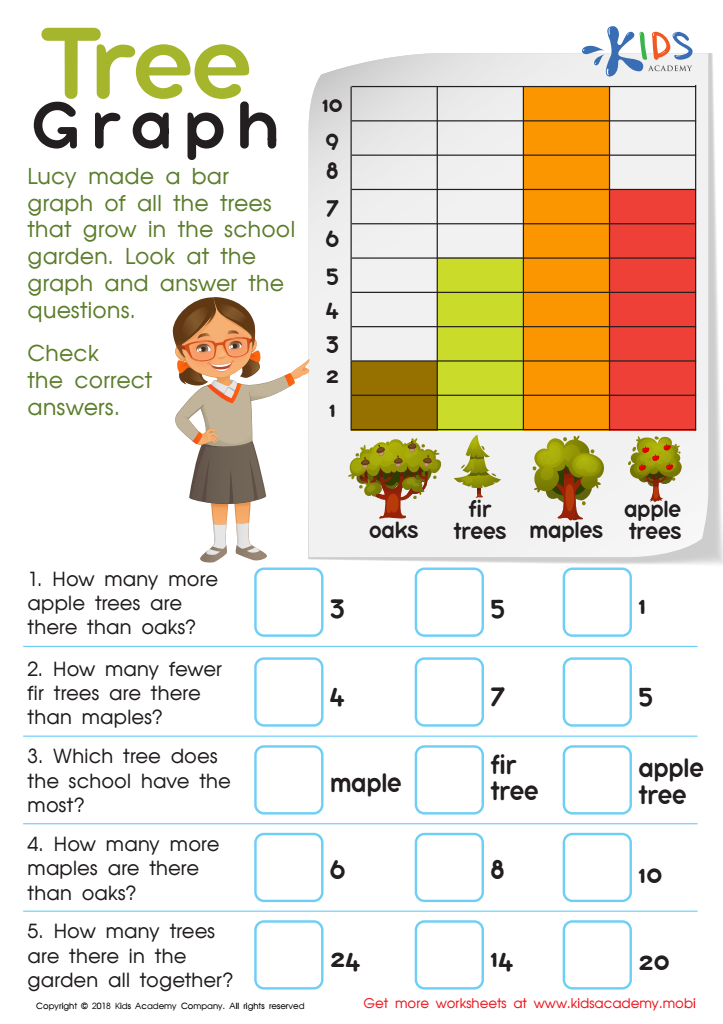

Tree Graph Worksheet
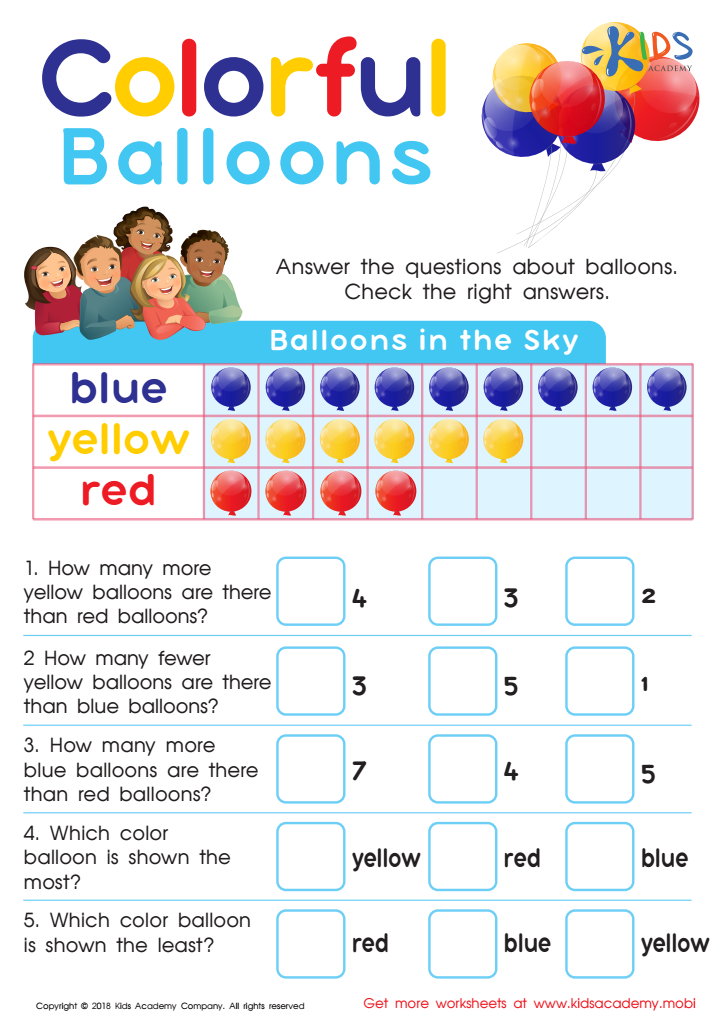

Picture Graphs: Colorful Balloons Worksheet
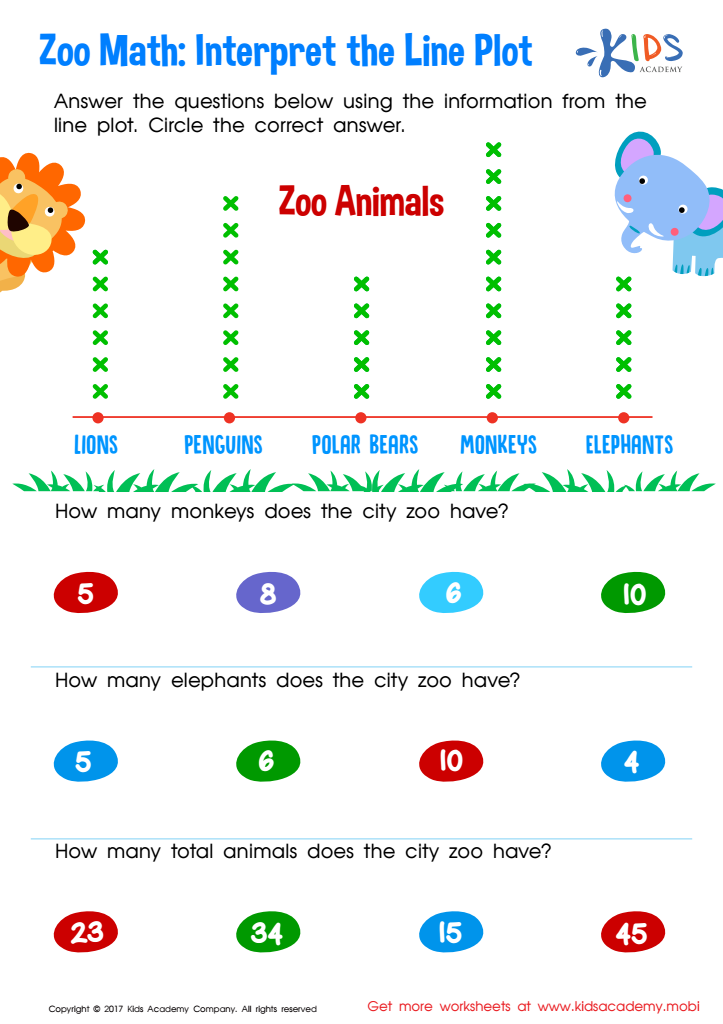

Interpret Line Plot Worksheet
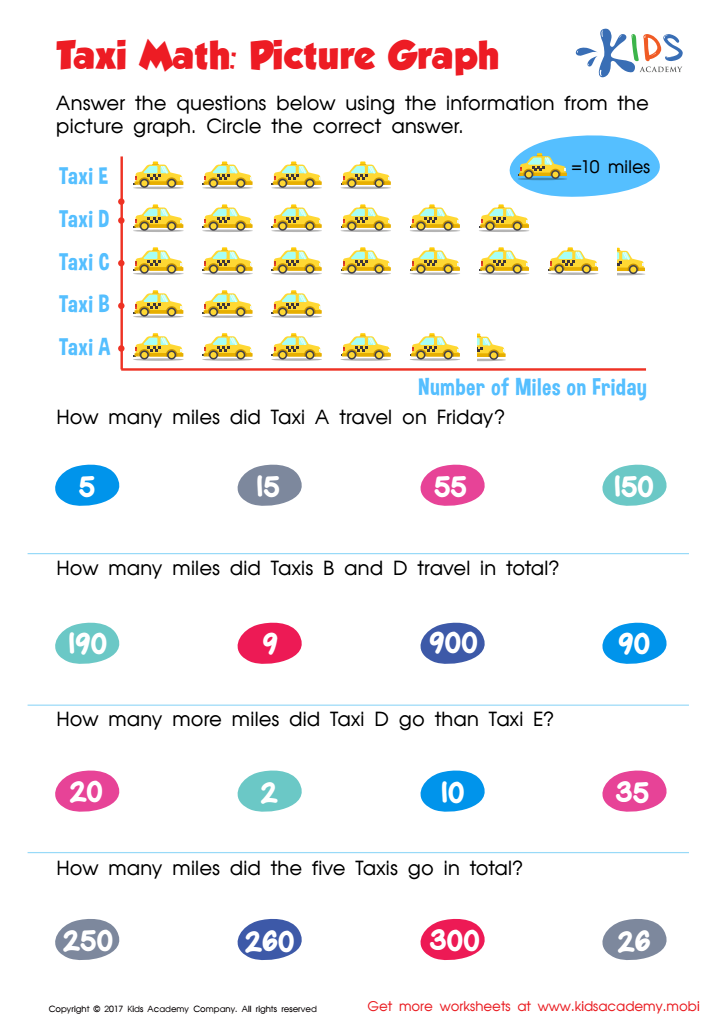

Taxi Math Worksheet
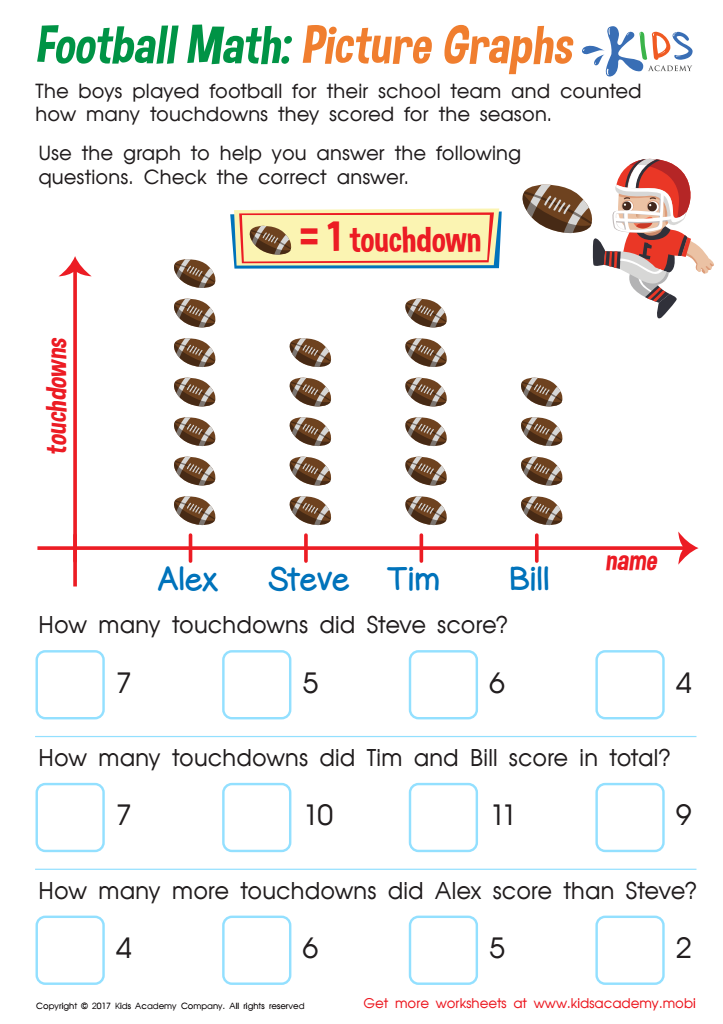

Football Math Worksheet
Extra Challenge Graphs for ages 6-8 are valuable tools for both parents and teachers because they enhance critical thinking and analytical skills at an early age. These graphs encourage children to engage with data in a hands-on manner, fostering a deeper understanding of mathematical concepts like addition, subtraction, and comparison. When students work with graphs, they learn to interpret information visually, which is an essential skill in an increasingly data-driven world.
Moreover, these graphs promote engagement by making learning interactive and fun. Children can relate to challenges that depict real-world scenarios, making mathematics more relatable and appealing. Parents and teachers play a key role in guiding children through these challenges, helping them not only grasp fundamental skills but also instill a sense of curiosity and problem-solving mindset.
Additionally, using Extra Challenge Graphs can aid in developing teamwork and communication skills when children work together on graph-related activities or discussions. By emphasizing data literacy from a young age, parents and teachers can prepare kids to navigate future academic challenges with confidence and critical insight. Thus, nurturing these skills early leads to a stronger foundation in both mathematics and analytical thinking, benefiting children as they progress in their education.

 Assign to My Students
Assign to My Students




















